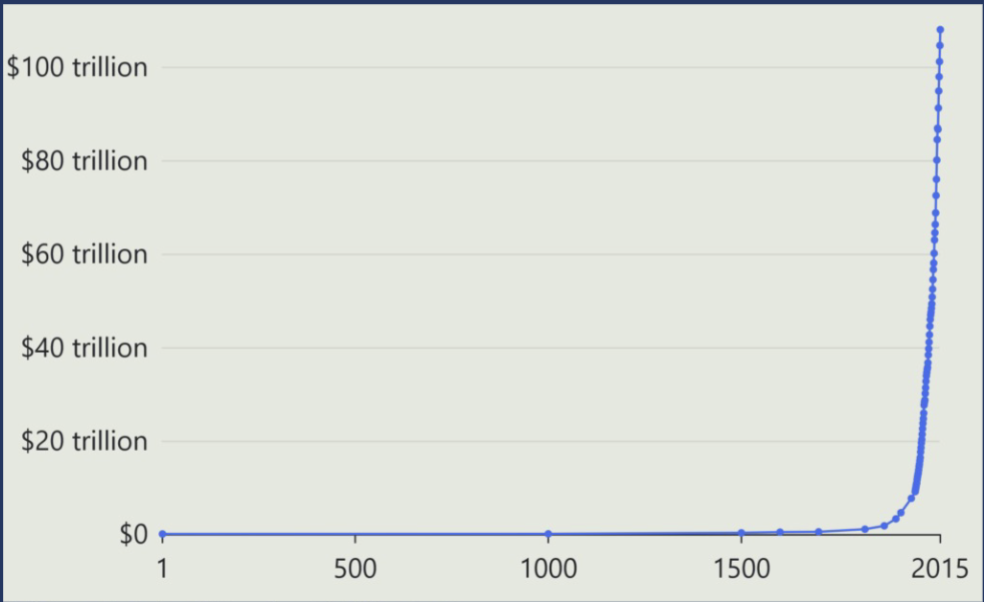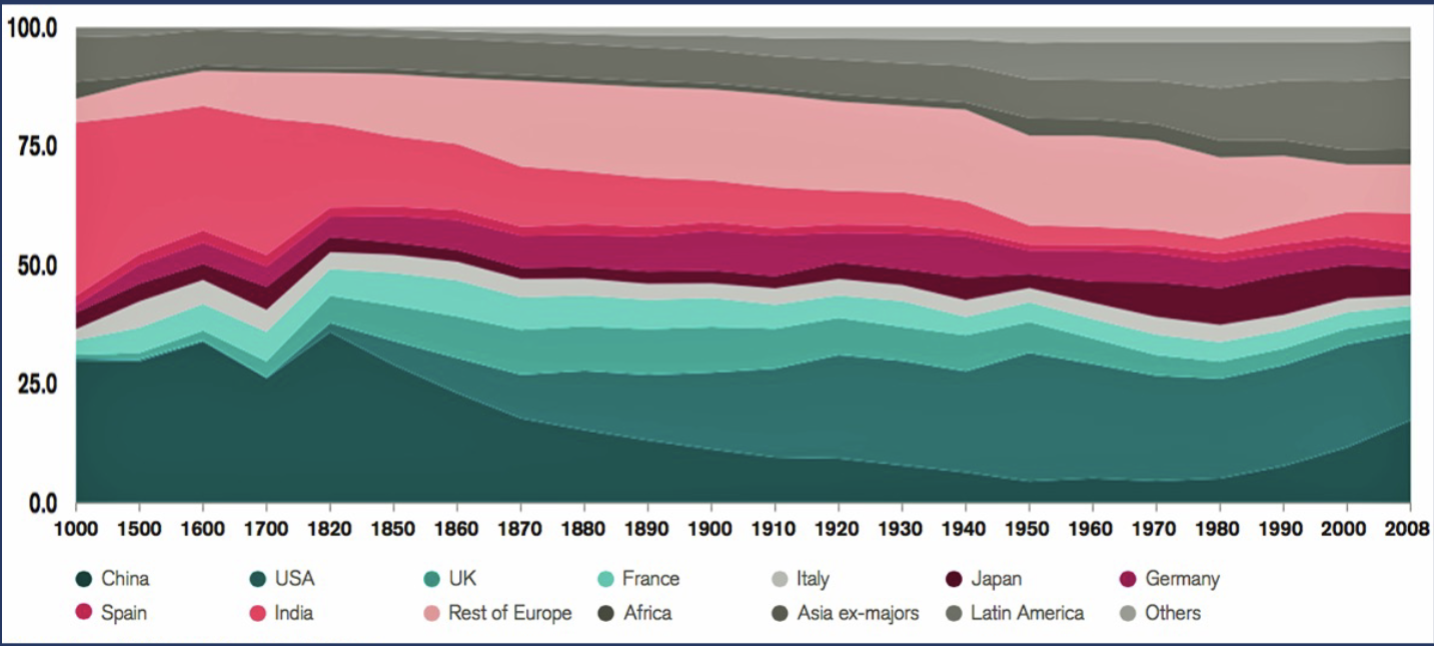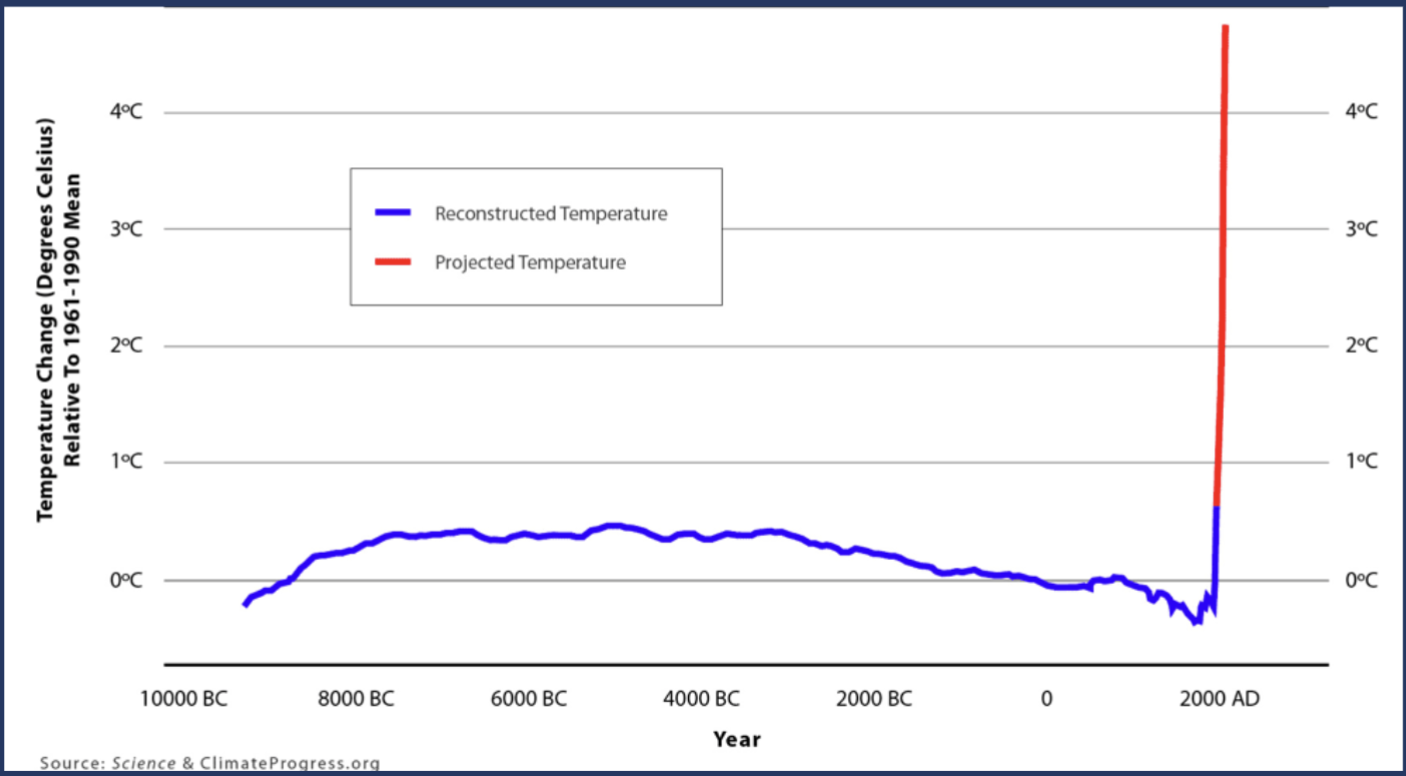Lecture 1/2 - Progress + The Great Divergence
1/25
There's no tags or description
Looks like no tags are added yet.
Name | Mastery | Learn | Test | Matching | Spaced | Call with Kai |
|---|
No analytics yet
Send a link to your students to track their progress
26 Terms

What is this graph called?
Pinker’s graph
The “hockey stick of global prosperity”
The hockey stick of prosperity
New medicine and technology
Higher living standards
Longer lives
These factors also help grow the global economy

Graph of global inequality

Klein’s graph
“Hockey stick of doom”
Climate change has knock on effects → threatens human civilization itself
What is the Great Divergence?
The process by which the economies of Europe and North America began to diverge from those of the rest of the world
Why did Europeans think the Great Divergence happened?
Culture → led to growth
Race → Europeans were just racially superior, which is why the economy was better
These aren’t the reasons, was just a reason to fuel superiority complexes
Pomeranz
The GD didn’t begin until 1750, even 1800
Before that was a “world of resemblances” → both Europe and Asia had similar wealth, standard of living, economic activity, etc + eco. constraints
Vasco de Gama
Portuguese explorer in the 15th century who found a route to India
When he gave gifts to the King of Calicut, he was highly unimpressed → poor people from Mecca and India could give better
China’s Age of Exploration
70 years BEFORE de Gama
Their “treasure ships” were much bigger and had more crew than Columbus
Proves that there isn’t European culture/racial superiority didn’t exist → Asia had impressive tech. + wealth
Ecological constraints
Limits pop + econ growth
Both Western Europe and the Yangzi Delta region faced similar constraints
Both regions needed either an industrial breakthrough or more resources
Thomas Malthus
1766-1834
Growth of resources = liner
Growth of pop = potentially exponential
This keeps pop growth in check
Cause of the Great Divergence
Coal
Colonies
Coal
Britain historically used wood for fuel → deforestation
Turned to coal in the 16th century
Coal deposits in Britain
Close to industry, wet
The largest in Europe
Coal deposits in China
Far from the Yangzi Delta
Dry → way more explosive
Chinese continue to use wood
Watt Steam Engine
1776
Originally used for coal mining
Coal extraction increases by 900% from 1700 → 1830
Steam engine produces:
Steamboat + trains → early 19th
What was the impact of the Watt Steam Engine?
Turbocharged the British economy → “workshop of the world”
Steam and pollution
Environmentally dangerous
Great Smog of 1873 → 1100+ die
Affected people’s sensory experiences → Van Gogh (paintings before vs. after London → super dark vs. light)
Portuguese Empire
Looking for silks and spice from Asia
Columbus reaches the Caribbean in 1492
VdG reaches India 6 years later
British Empire
British + French follow the Portuguese and Spanish Empires
Brits defeat France in the Seven Years’ War (1756-63) → become the most powerful empire
“The Empire on Which the Sun Never Sets”
How did Britain and Western Europe incorporate the rest of the world into a global economy?
Imported from the Americas → land
Slaves from West Africa sold in America → people
Manufactured goods sold back to settlers in Americas → kept the cycle going
Ghost acreage
The amount of land Britain would have needed to get the same amount of resources domestically rather than from the New World
How much ghost acreage would have Britain needed?
By 1830, 25-30 million ghost acres
Britain’s total arable land was only 17 million acres
Why didn’t China acquire colonies?
China’s “treasure” fleet final voyage was in 1430
Voyages ended by 1433
Ming implemented a “sea ban” → maritime activity restricted
The consequences of coal and colonies?
Between 1815 and 1900, Britain’s coal, sugar, and cotton imports increased by 10-20x
Brit’s economy diverges from the rest of the world
Rest of Europe soon follows